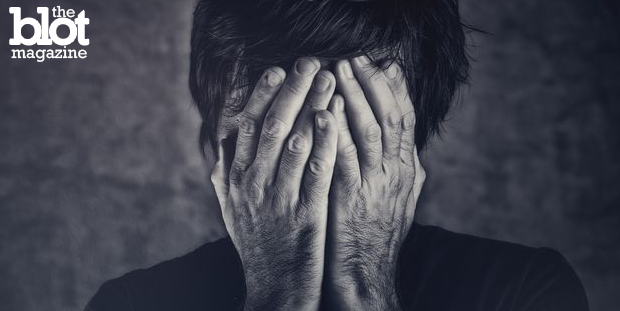“Anyone who has actually been that sad can tell you that there’s nothing beautiful or literary or mysterious about depression” — Author Jasmine Warga
We see, hear and read about mental illness and addiction issues every single day of our lives, yet we don’t realize the damage we are causing. Social media sites are ripe with “games” and “quizzes” about what mental health issue fits you best, with the most-popular ones revolving around obsessive-compulsive and bipolar disorders.
Thanks in part to the TV series “Monk,” OCD has now become a household metal illness whose symptoms are so watered down that few people actually know what it means to have it and often brag that they suffer from it. We also support the stigma of metal illness by allowing ourselves to click on those baited tabloid stories regaling all the insanity surrounding the latest celebrity breakdown and then applying the fantasy of the story to the reality of your coworker’s daughter who is now on medication for a mental disorder. The glamorization of mental illness is something that us as state, national and world communities need to end in order for progress to be made in our understanding, acceptance and general empathy for those who live the nightmare.
Mental Illness … In Fashion
Online publication Vs. Magazine featured Eva Mendes in an ad called “Crazy for Eva,” which featured the model dressed to the nines in a mental ward having psychotic episodes, getting tranquilized by a nurse and then the process repeated day in and day out until Mendes eventually kills the nurse and tries to escape. The video can be see below:
The video brings together sex appeal, mental illness and death, all for the sake of an edgy photo shoot and drew a considerable amount of criticism from all over the world, including the mental health industry. While it is certain that neither Mendes nor the others involved in the shoot meant for this video to be so insensitive to those battling mental health issues such as hospitalizations, the fact that there is so much awareness about mental illness yet still so little compassion or empathy for it shows how little we understand the depth and breadth of what it does to individuals and families. To see a living hell that you have personally experienced thrown out to sell fashionable chic, music, or TV shows is an unbearable insult that keeps the cycle of glamorization of mental illness popular and profitable.
Mental Illness … In Entertainment
Scores of entertainers have suffered from and lost the battle of mental illness. The heartbreaking death of Robin Williams rocked the world last year and drew considerable attention to those who live with depression, but the public and news outlets weren’t just satisfied with the actual story. News helicopters flew over Williams’ house day after day in hopes of getting sensational pics of his family grieving while “journalists” camped outside the estate longing to interview that one person who would slip and say too much. While natural curiosity is expected, the profiteering from his death was unrelenting and we, the public, who cannot seem to get enough of famous people in crisis situations, are really to blame. Amy Winehouse, Whitney Houston, Kurt Cobain … the list of entertainers whose struggle with their inner demons eventually surpassed their contributions to the world goes on and on. Their deaths gave them unfortunate immortality, even more than their life among the living did.
(It has been argued that the more depressed and pained an artist is, the more creative their work becomes. One look back at the level that Williams, Winehouse, Houston and Cobain’s careers were at show a far different outcome from their struggles with mental illness. None of these artists were churning out mind-blowing work at the time of their deaths and, in fact, all of them were either on the downward slide of fame or in the process of trying to reignite their career. Pain can inspire much in an individual, but it should never be assumed that it is the only way artists live and die.)
Mental Illness … The Reality
You would think that given that one out of every four adults has struggled with metal illness at some point in their life and that approximately 20 percent of teenagers between the ages of 13-18 have also struggled with mental health issues, we’d have a little more empathy toward those who live with it. But as long as we keep thinking that mental illness issues are a celebrity, poor person or homeless issue, then we will continue to leave the humanity out of it and, therefore, not push for funding for treatment, education or public acceptance of mental health issues.
If you would fall apart over someone telling all of your coworkers, extended family members and random strangers on the street about the details of your child’s last counselor visit, why is it perfectly acceptable to buy magazines and click on trashy tabloid Internet banners of a celebrity who is struggling with the same issues as your son or daughter? Claiming you have OCD or are bipolar because you heard your favorite celebrity mention it and now all of a sudden you obviously have it, is insulting at best — and, at worst, dangerous. It is insulting to those who do suffer from brain disorders and have to deal with it day in and day out and dangerous to yourself and those around you should you actually suffer from a mental illness and not seek treatment because its more popular to not.
Take the glamorization out of mental illness for celebrities. Stop the judgment. Start educating yourself on what mental heath issues really are. Understanding is the key to making this a human issue, one that affects us all.
Diana Marsh is a contributing journalist for TheBlot Magazine.






